Think you’ve nailed the pitch? Great. But if your prospect ghosted after the proposal, the problem isn’t your product—it’s your close. Closing is where most sales deals stall, and let’s be real: winging it doesn’t cut it anymore.
Whether you’re selling software, services, or six-figure packages, the right books can sharpen your objection handling, improve your follow-ups, and help you close high-ticket deals like a pro.
These aren’t fluffy reads—they’re practical, no-BS guides written by closers for closers.
Why Mastering the Art of Closing Matters
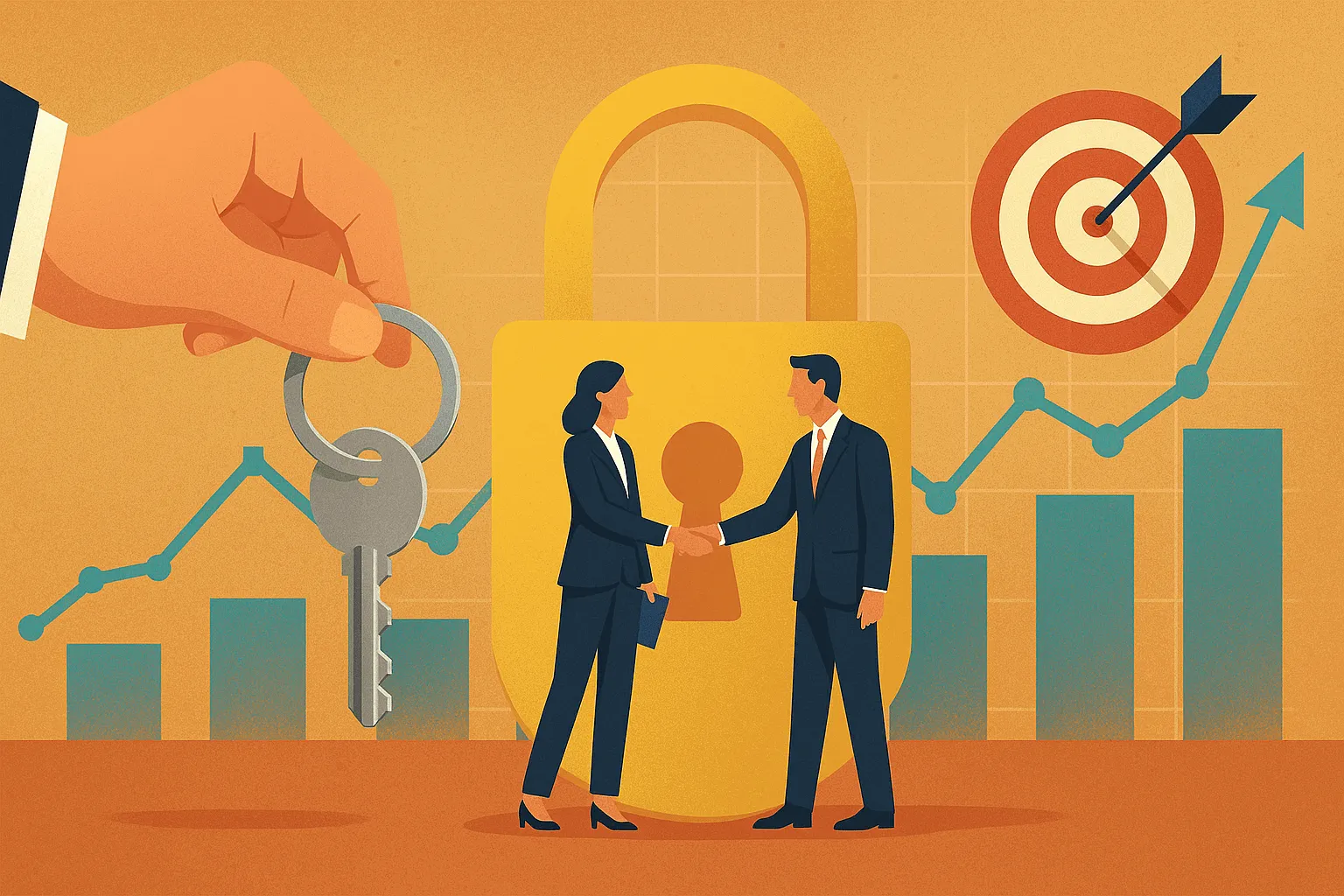
If you work in sales, you already know this: talking to a customer is easy—but closing the deal? That’s where things get tricky.
Most people don’t say “yes” right away. They have questions, doubts, or just need more time. If you don’t know how to close, the sale slips away. That’s why learning to master closing is so important—and the best way to learn? Read the right closing the sale books.
The Sales Process in Today’s World
The way people buy things has changed. Today, customers read reviews, compare prices, and ask more questions than ever. If you're in sales, it's not enough to just talk about your product—you have to know how to close the deal.
That’s why reading the right closing the sale books matters. These books teach you how to handle hard questions, follow up the right way, and sell with confidence.
Why Closing Skills Matter Now More Than Ever
- The sales process now involves more steps—emails, calls, demos, and follow-ups.
- If you don’t follow up, the deal may be lost.
- A good close makes the customer feel understood, not pressured.
“Closing is not a trick. It’s a service. You’re helping someone make a good decision.” — Zig Ziglar
What are ‘Closing the Sale Books’—And Who Should Read Them?
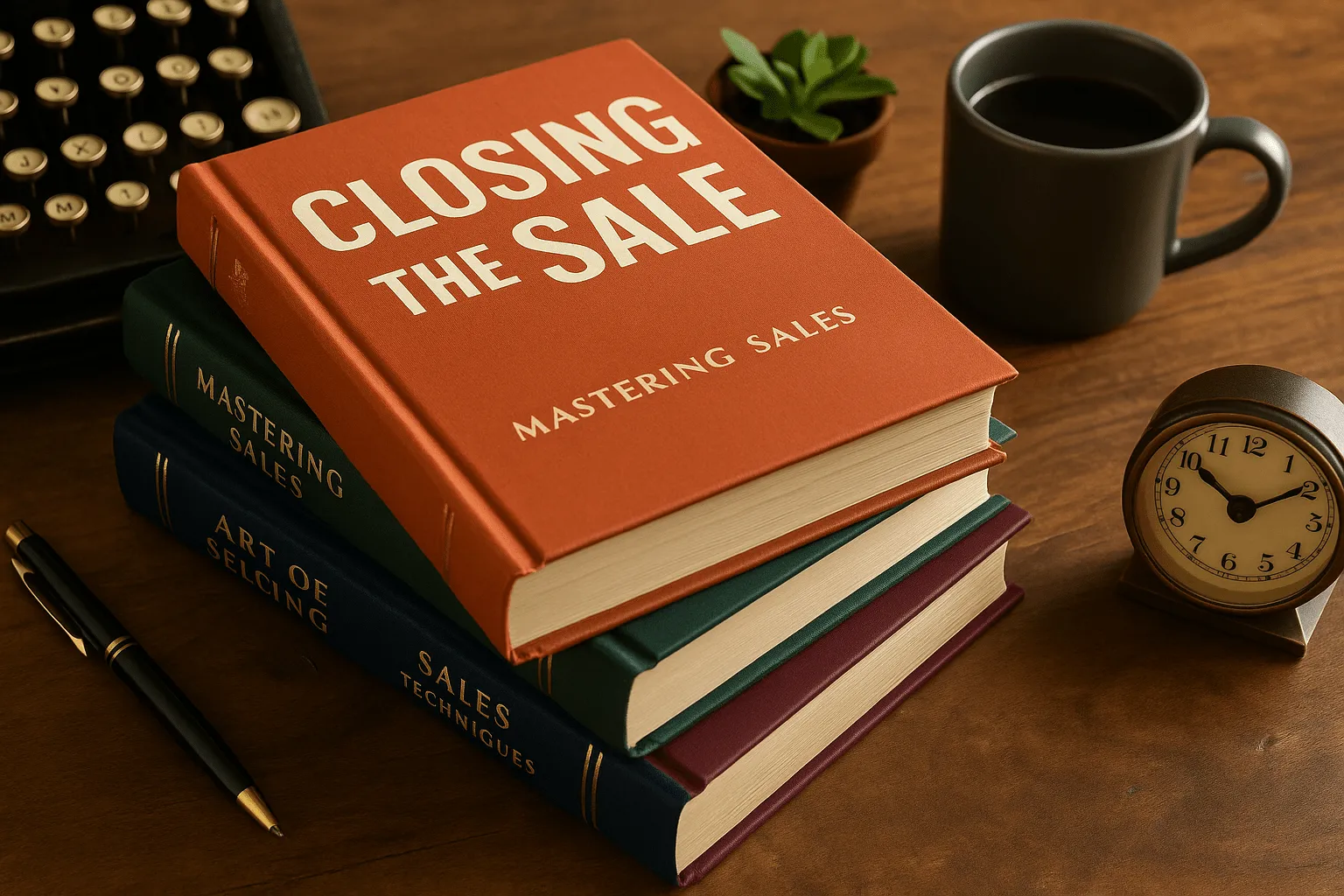
Closing the sale books are simple, helpful guides that teach you how to win customers, handle tough questions, and seal the deal. These books are made for people who work in sales, run a business, or want to sell services better—online or in person.
Who Should Read Them?
- Sales professionals who want to close faster
- Sales managers training their teams
- Small business owners starting a new store
- People working in a company who want to improve customer trust
- Anyone in a shopping center, bookstore, or even a virtual book desert looking to grow their sales success
Pro Tip: These books aren’t boring textbooks—they’re full of real talk, easy advice, and powerful tools used by successful salespeople around the world.
Sales Professionals vs. Sales Managers: Who Gains What
Top 10 Must-Read Closing the Sale Books for Every Salesperson
1. The Psychology of Selling by Brian Tracy
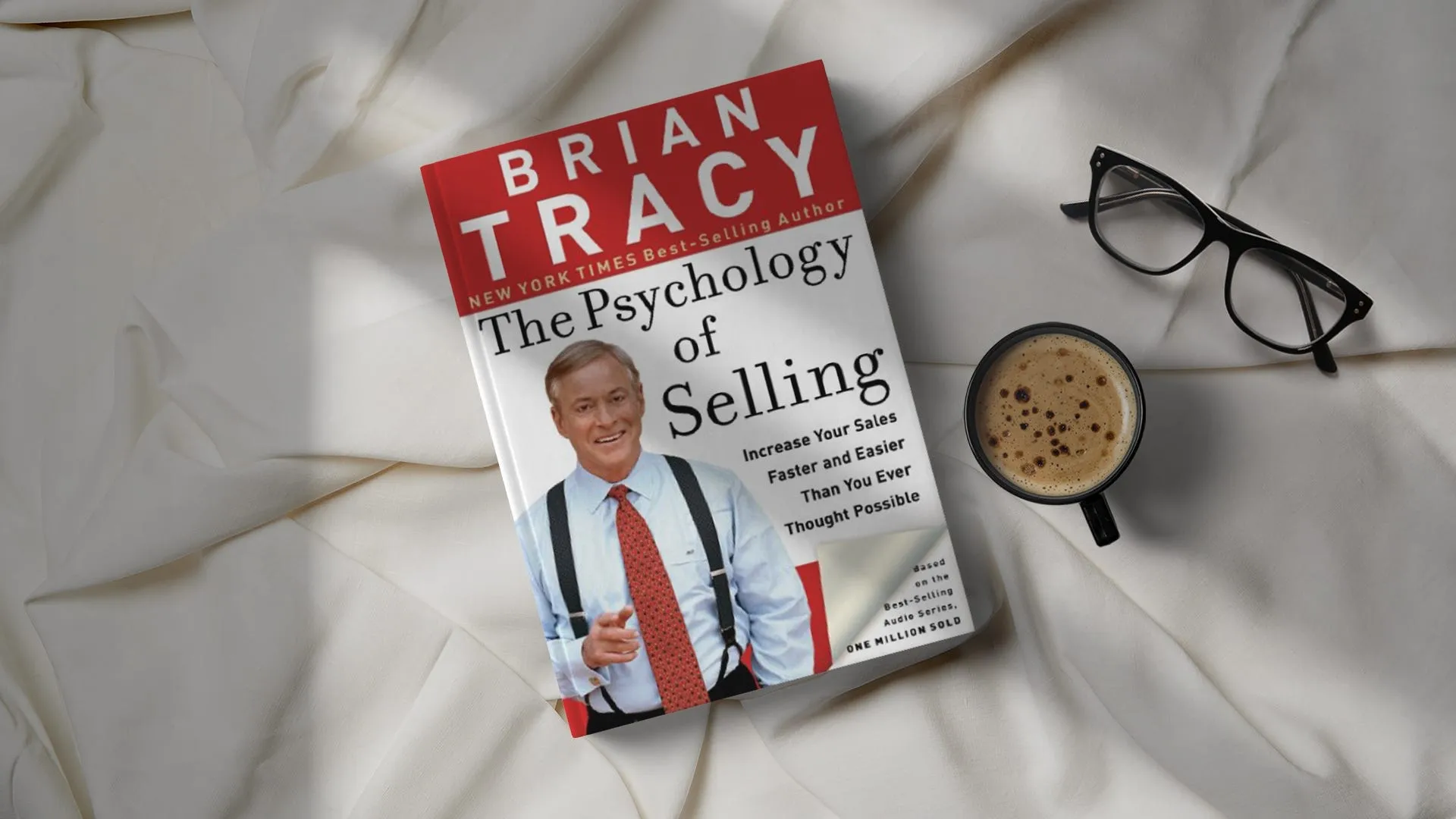
This is one of the most famous sales books ever written. Brian Tracy explains how the mind of a buyer works, and how top salespeople use that knowledge to close more deals.
Key takeaways:
- Understand why people buy (hint: it’s not always about price).
- Learn how to stay confident during a sales call.
- Use simple closing techniques to ask for the deal without pressure.
Why it’s helpful: If you feel nervous or unsure when it’s time to ask for the sale, this book gives you the tools to stay in control. It’s a must-read for any professional salesperson or sales manager who trains others.
“Meet every customer ready to help solve their problem, not just to sell a product or service.” – Brian Tracy
2. Sell or Be Sold by Grant Cardone
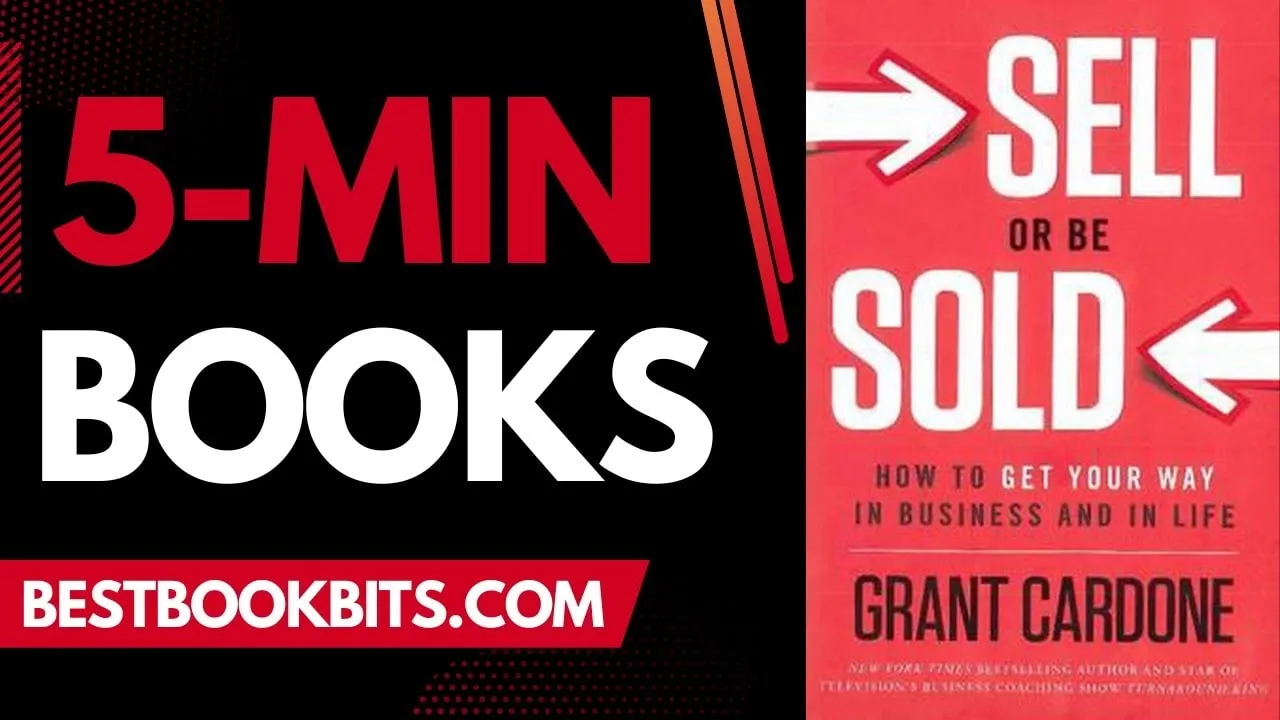
Grant Cardone is bold, loud, and confident—and his book is too. He teaches that everyone is always selling something. And if you’re not good at it, you’ll miss big opportunities.
Key takeaways:
- Believe in your product or service 100%, or no one else will.
- Follow up like your life depends on it.
- Know that sales success comes from daily practice and discipline.
Why it’s helpful: This book is for those who want a no-excuses mindset. If you’re working in a company, growing a new business, or opening a new store, this one pushes you to take action and own your sales process.
3. Secrets of Closing the Sale by Zig Ziglar
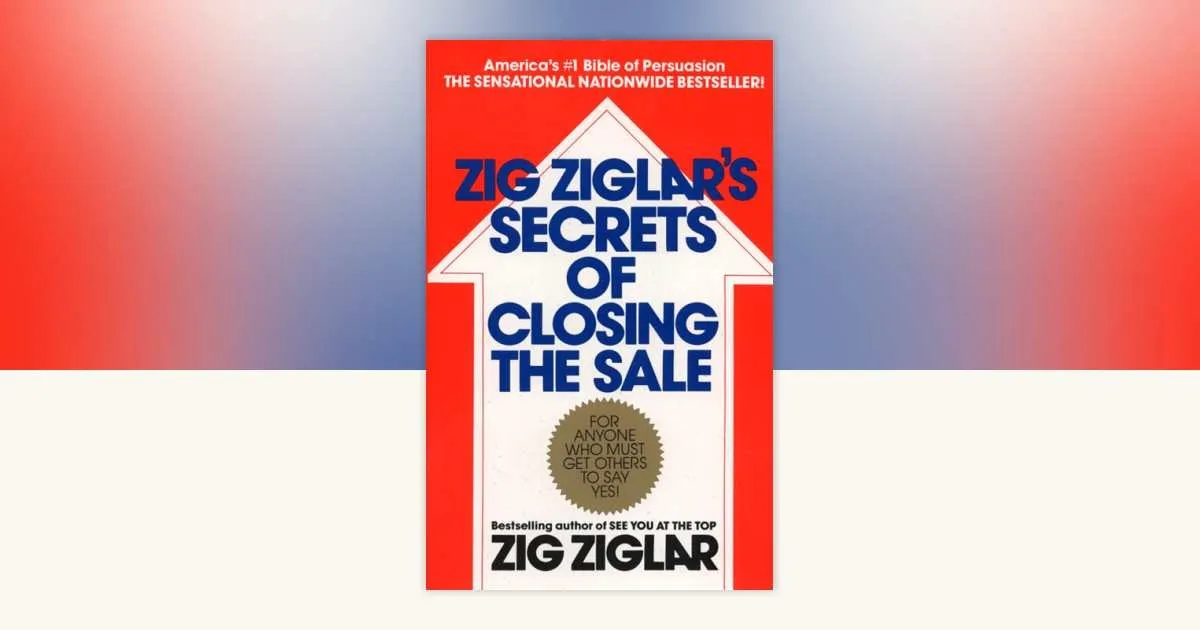
Zig Ziglar is known for making selling feel human. His book shares over 100 ways to close a sale, all built around trust, service, and clear communication.
Key takeaways:
- Use friendly stories to connect with your customers.
- Turn common objections into honest conversations.
- Be helpful, not pushy—successful salespeople solve problems.
Why it’s helpful: This book is especially useful for those who hate sounding “salesy.” Whether you sell in a shopping center, over the phone, or from a bookstore, Ziglar shows how to close with kindness and honesty.
4. Way of the Wolf by Jordan Belfort
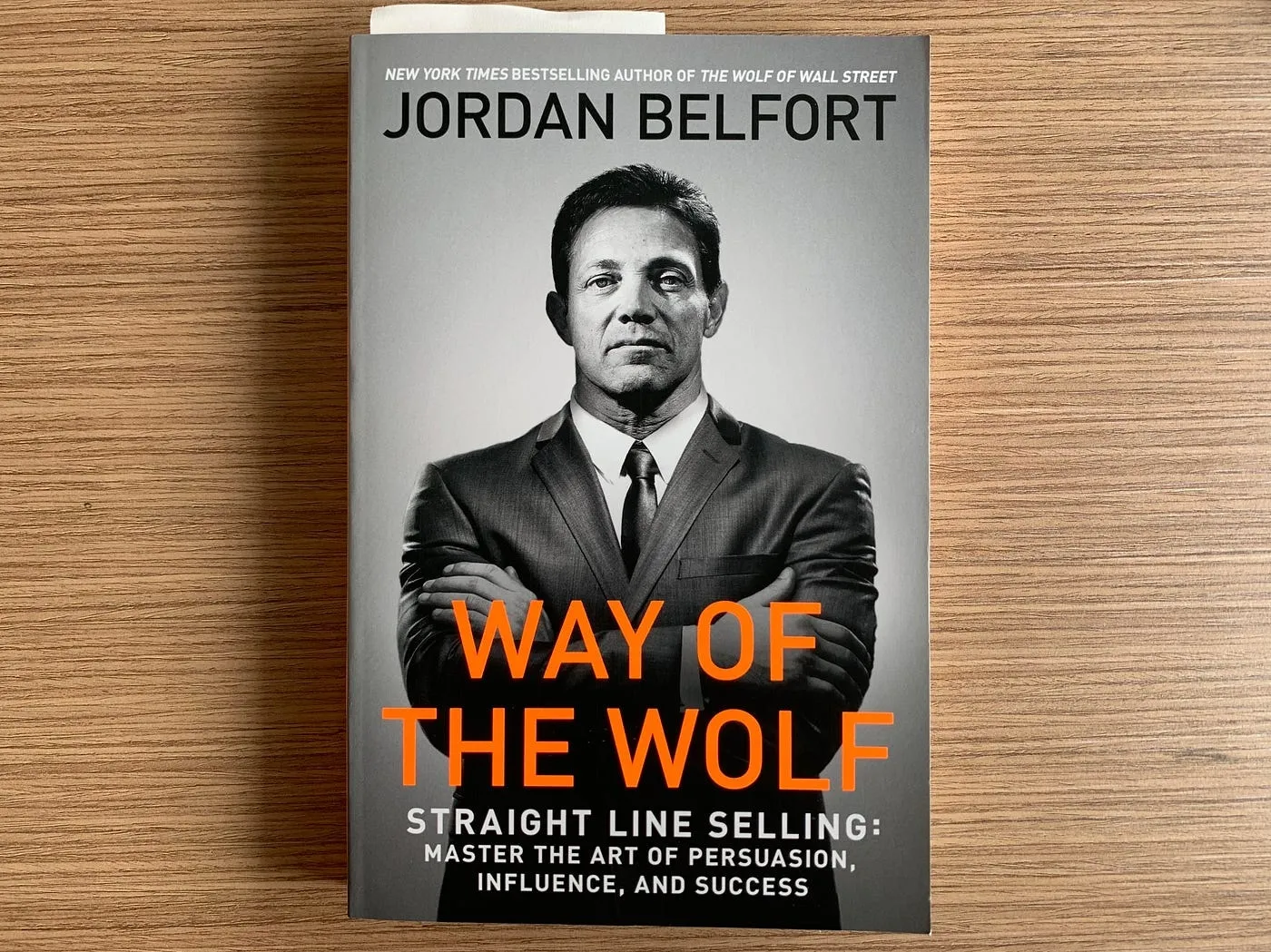
Jordan Belfort (yes, the real Wolf of Wall Street) created a system called the Straight Line Selling Method. It teaches you how to stay in control of the sales conversation from start to close.
What you’ll learn:
- How to build trust and certainty with your buyer fast
- How to speak with the right tone and body language
- How to stay focused and not get lost in the chat
Why it works: This book is great if you lose deals halfway or struggle with price objections. Belfort gives scripts and step-by-step lines you can actually use on a sales call.
5. To Sell Is Human by Daniel H. Pink
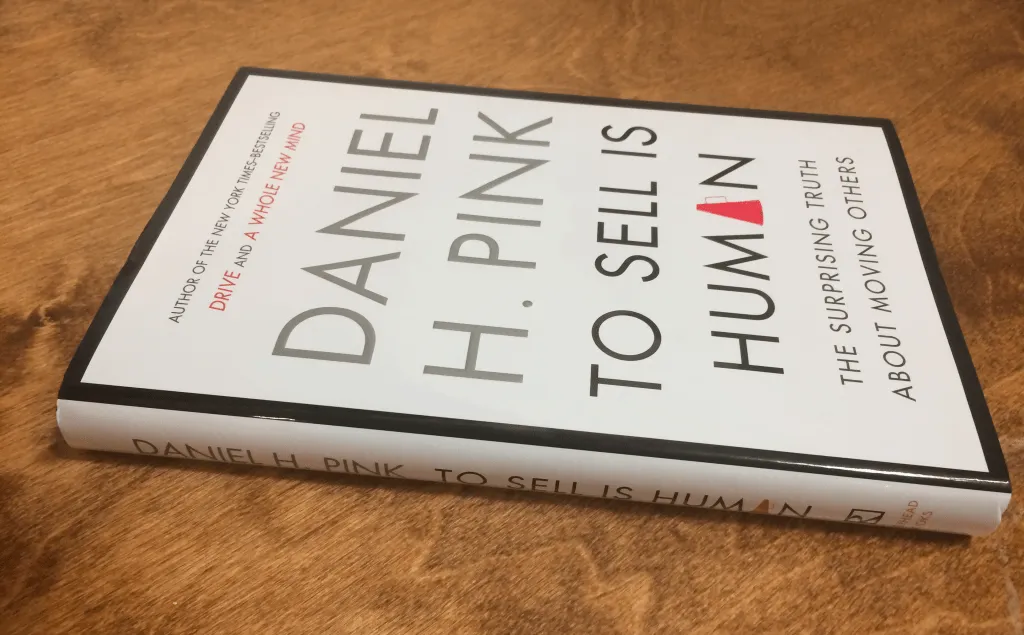
Daniel Pink says that everyone is in sales now—whether you’re closing a deal or getting your kids to eat broccoli. This book is more about how people make decisions and what really drives them to say “yes.”
What you’ll learn:
- Why listening is more powerful than talking
- How to use questions to guide a customer
- Why trust and empathy close more deals than pressure
Why it works: If you feel sales is “not your thing,” this book shows that you’re probably doing it every day. It’s perfect for new business owners, freelancers, or people in service companies.
6. The Challenger Sale by Matthew Dixon & Brent Adamson
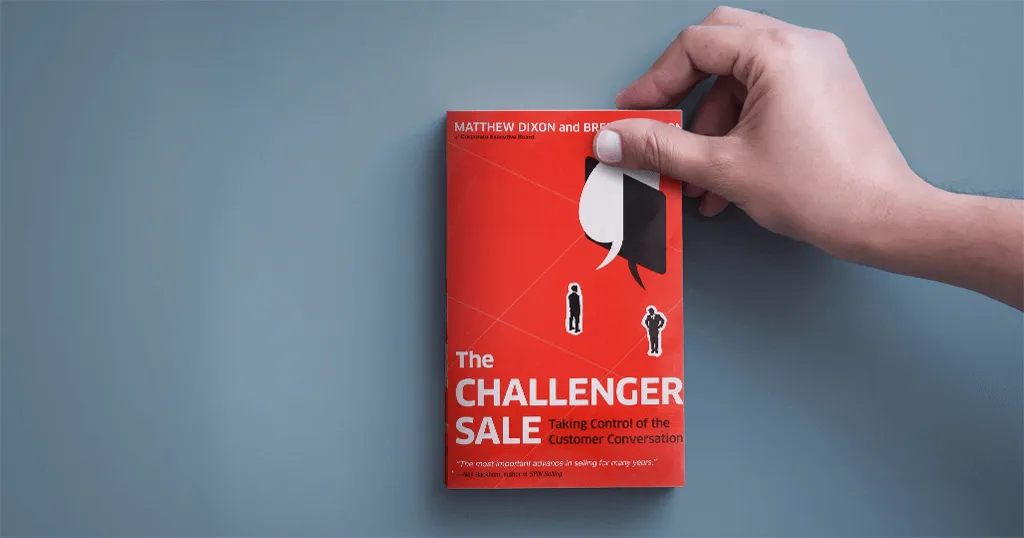
This book is backed by research from over 6,000 sales reps. It found that one type of rep—the Challenger—outperforms all others. Challengers don’t just answer questions. They teach the buyer something new.
What you’ll learn:
- How to challenge your buyer’s thinking in a helpful way
- How to use insights to move the deal forward
- How to stay in control even with tough customers
Why it works: This is a must-read for sales managers or teams in B2B sales. If you're selling in a company or pitching to decision-makers, this book shows how to lead the deal—not follow it.
7. Fanatical Prospecting by Jeb Blount
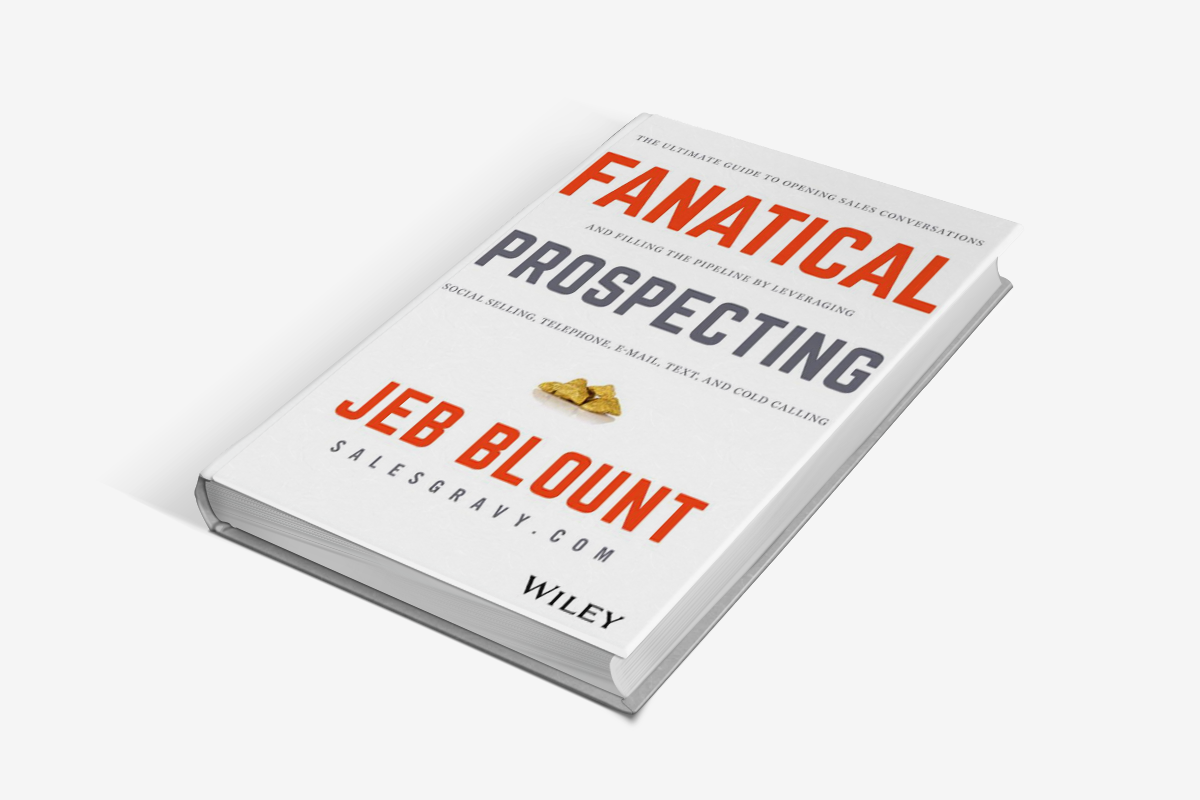
This book teaches you how to find leads and keep your sales pipeline full. Jeb Blount says most people fail in sales not because they can't close—but because they don’t talk to enough people in the first place.
What you’ll learn:
- Why prospecting (finding new people to talk to) is key to sales success
- How to schedule your day so you always have people to follow up with
- Why cold calling, email, and social media still work—if you use them right
Why it works: If your business feels slow or your sales manager keeps asking about your numbers, this book helps you fix that. It’s full of real-world tips that work for companies, solo sellers, and sales teams.
8. The Closer’s Survival Guide by Grant Cardone
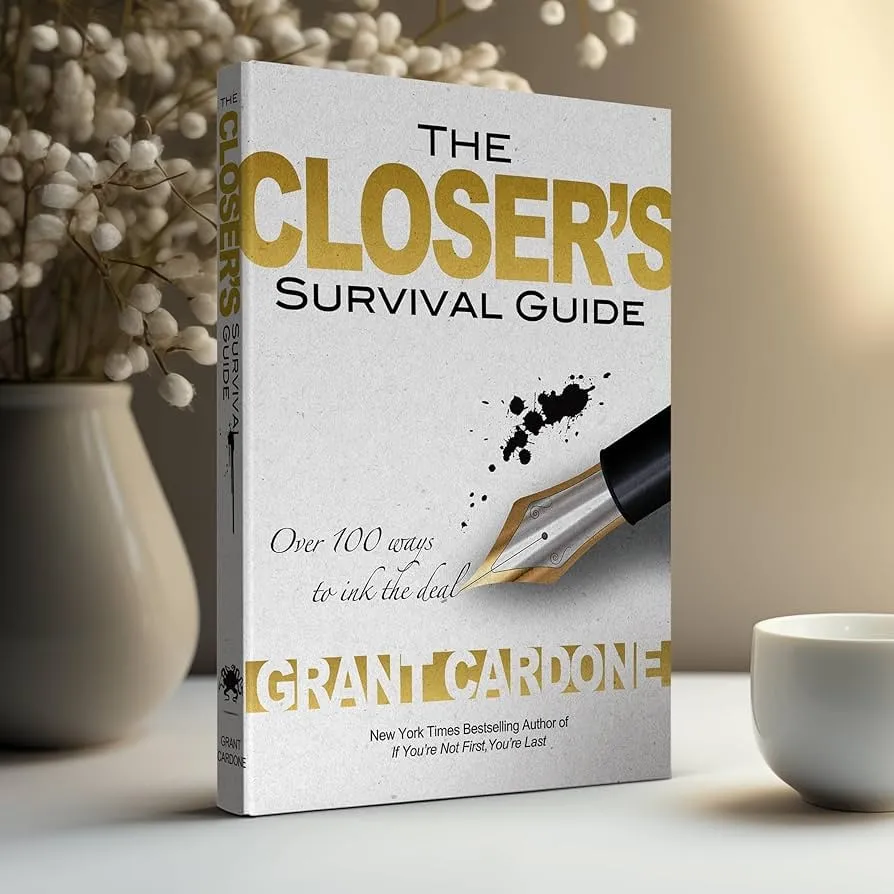
This is a go-to manual for closing. If you feel stuck or frozen at the end of a sales call, this book gives you the exact words to say. Grant Cardone breaks down over 100 closing techniques you can use in real situations.
What you’ll learn:
- What to say when someone says, “It’s too expensive”
- How to handle objections without sounding pushy
- How to stay confident—even when the customer says no
Why it works: This book is bold and direct—just like Cardone. It’s perfect if you’re in retail, run a new store, or are part of a sales team with big goals.
9. Exactly What to Say by Phil M. Jones
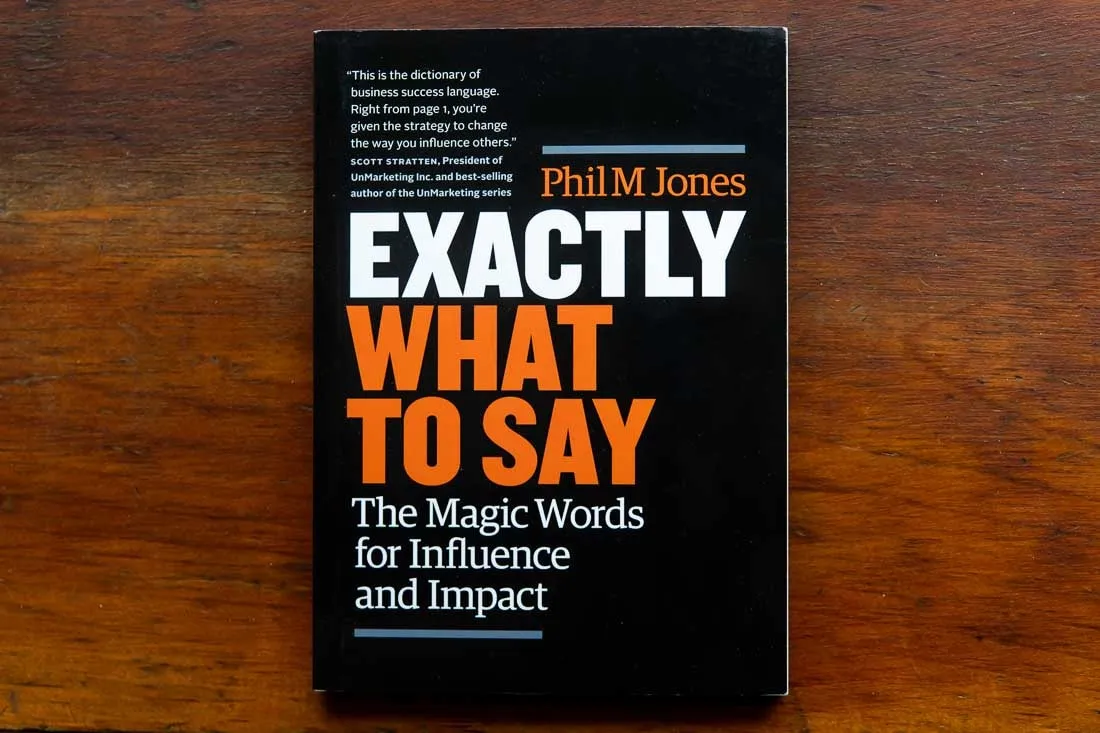
This short book teaches you the magic words that change how people react. Phil M. Jones shares simple phrases that help you lead the conversation without sounding scripted.
What you’ll learn:
- Phrases that lower pressure and make people open up
- How to guide someone toward a “yes” naturally
- Tools to make your message more persuasive
Why it works: This is perfect if you’re shy, nervous, or just want to sound more professional. It’s also great for salespeople who talk to clients in person, online, or in shopping centers.
10. Pitch Anything by Oren Klaff

Pitch Anything teaches you how to keep control during a sales pitch. Oren Klaff introduces a method called “frame control”. It helps you stay confident when speaking to tough clients or high-level decision-makers.
This book is different from other closing the sale books because it focuses on how people think and react during a pitch.
What you’ll learn:
- How to keep the buyer’s attention
- How to stay in charge of the conversation
- Why storytelling helps you close big deals
Why it works: If you’re selling to business owners, big companies, or in high-pressure meetings, this book gives you a real edge. It’s perfect for sales professionals and sales managers who want to improve their sales process and close more high-ticket deals.
Master Objections with These Proven Book-Based Frameworks
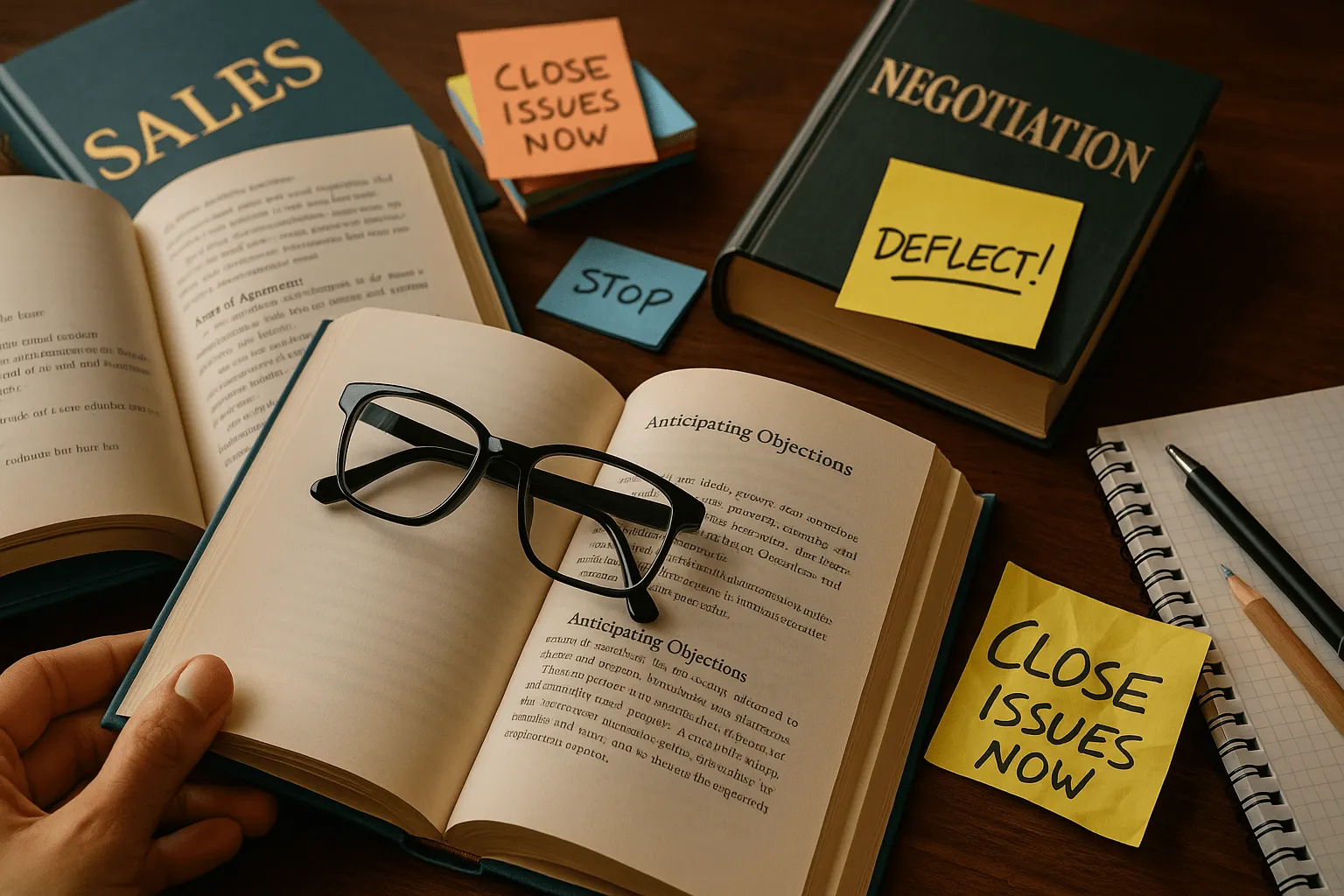
- Brian Tracy’s “Feel-Felt-Found” Method: Book: The Psychology of Selling. This method makes the buyer feel understood.
- Say: “I understand how you feel.”
- Then: “Others have felt the same.”
- End: “They later found it was the right choice.”
- Grant Cardone’s “Agreement Formula”: Book: Sell or Be Sold. Cardone says never fight an objection. Just agree and redirect.
- Say: “I agree, it is a big investment.”
- Then: “That’s why our clients choose it—because it saves them time and money.”
- Zig Ziglar’s “Objection to Benefit Bridge”: Book: Secrets of Closing the Sale. Ziglar teaches you to turn a “no” into a reason to buy.
- Objection: “It costs too much.”
- Reply: “That’s exactly why it’s worth it—because it saves on other costs.”
- Jeb Blount’s “Objection Turnaround” Playbook: Book: Fanatical Prospecting. Jeb shows how to stay calm and respond fast.
- Ask: “Is it the price or the timing that’s holding you back?”
- Then offer a clear next step.
This helps you move from stuck to scheduled.
- Phil M. Jones’ “Magic Words” to Handle Objections: Book: Exactly What to Say
Words matter. Jones gives short phrases that open people up.- Try: “What makes you say that?”
- Or: “Would it be crazy if we tried this solution?”
- Oren Klaff’s “Frame Control” to Bypass Objections: Book: Pitch Anything. Klaff teaches how to lead the conversation from the start.
- Stay confident.
- Focus on your value, not just facts.
- Keep control so objections don’t stop the deal.
Follow-Up Strategies from the Pros: Lessons from Closing Books
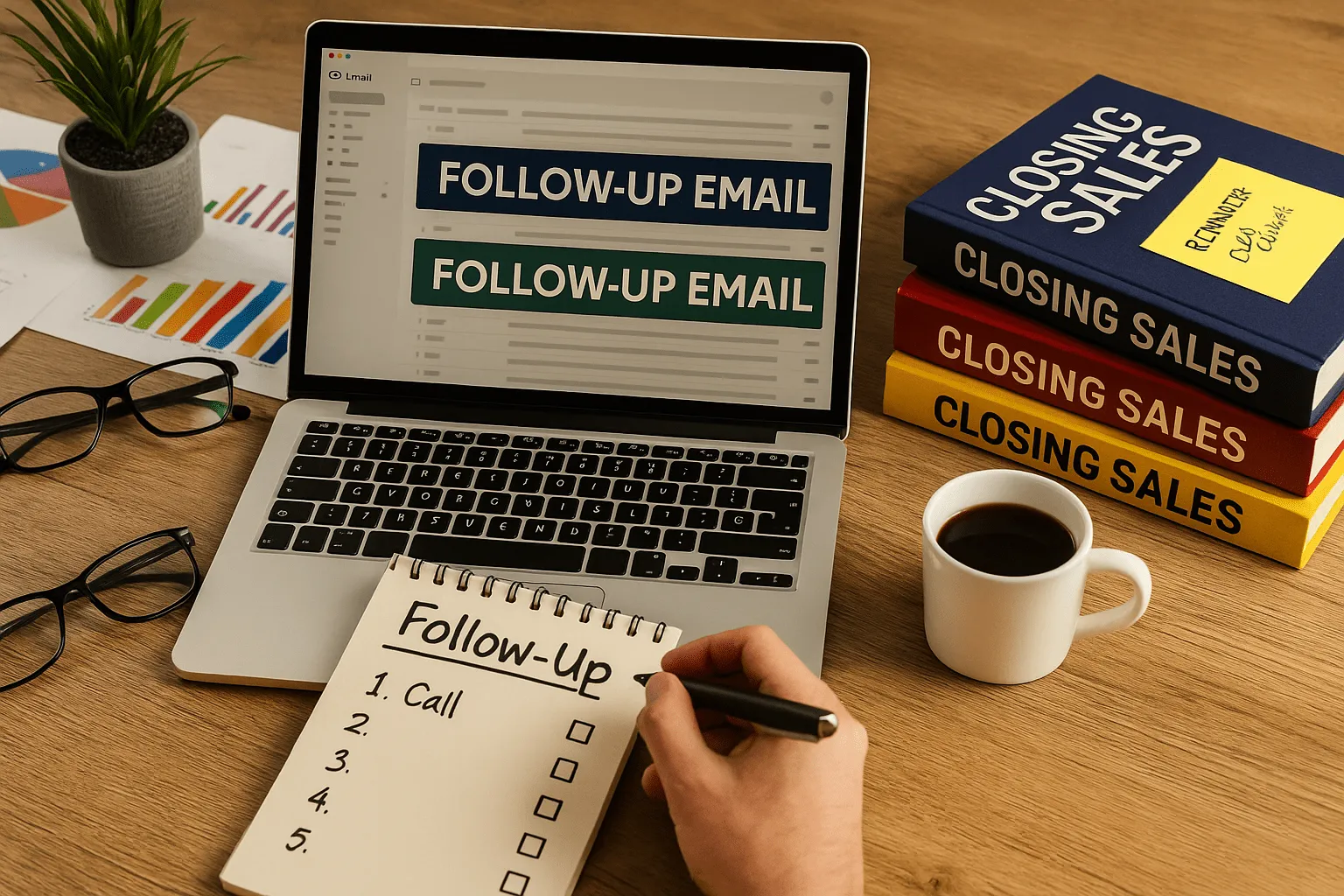
1. Brian Tracy: "The Fortune Is in the Follow-Up"
Book: The Psychology of Selling
Brian Tracy says most sales don’t happen on the first call. People need time. But they also need a helpful reminder.
What to do:
- Follow up at least 5 times. (Research shows this is when most sales success happens.)
- Don’t just say “checking in.” Add value—share a tip, case study, or small win.
- Keep it short and polite.
“Treat each follow-up as a service, not a pitch.” – Brian Tracy
2. Grant Cardone: "Dominate the Silence"
Book: The Closer’s Survival Guide
Cardone says silence after a pitch is normal. But waiting too long? That’s a mistake.
What to do:
- Follow up fast. Don’t wait days.
- Use different closing techniques depending on the buyer’s style.
- Add urgency: “We only have 2 spots left this month.”
Pro tip: Don’t be shy. Salespeople who follow up more close more.
3. Jeb Blount: "Mix the Mediums"
Book: Fanatical Prospecting
Blount teaches that one follow-up style doesn’t fit all. Don’t just email.
What to do:
- Use a mix: phone, email, text, and LinkedIn.
- Space them out over 7–14 days.
- Add a clear next step every time (“Let me know if we can book 15 minutes this week.”)
4. Daniel Pink: “Follow Up with Purpose”
Book: To Sell Is Human
Daniel Pink says sales today is more about helping than pushing. People don’t want to be chased—they want to be guided. That’s why every follow-up should have a clear reason.
What to do:
- Don’t send “just checking in” emails. Be specific.
- Share something helpful: a short article, tip, or update.
- Ask questions like, “What would help you decide this week?”
Why it works: This keeps the conversation useful and respectful. Buyers feel like you’re on their side, not just trying to make money.
5. Phil M. Jones: “Say the Right Thing in the Right Way”
Book: Exactly What to Say
Phil M. Jones teaches that small words can make a big difference. He shares short phrases—called magic words—that make your message more natural and easy to accept.
What to do:
- Try saying, “I’m not sure if this is for you, but…”
- Or ask, “Would it be a bad idea to…”
- These phrases make people feel safe and open to the idea.
Why it works: It lowers resistance. It also shows you’re not being pushy, which helps build trust—a key to long-term sales success.
High-Ticket Selling: Books That Help You Close Big Deals
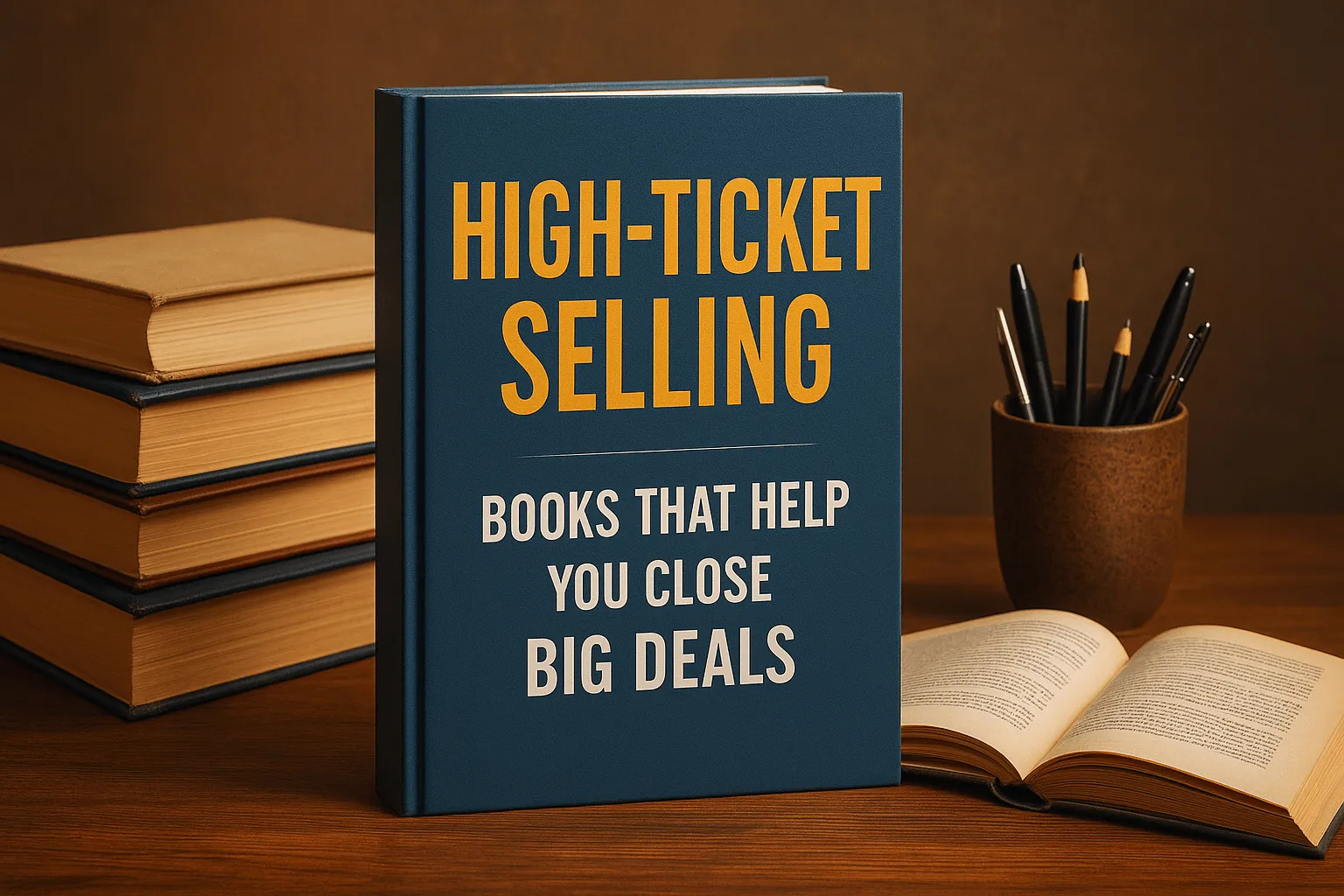
1. Sell with a Story by Paul Smith
This book teaches you how to use stories to help customers understand and trust your product.
How it helps you close high-ticket deals:
- Stories help people remember what you said
- Stories build an emotional connection, especially in long sales processes
- You learn how to explain value without using salesy words
2. The Ultimate Sales Machine by Chet Holmes
Chet Holmes gives you a system for sales success, not just one trick.
How it helps you close big deals:
- It shows how to train your sales team the same way
- It helps you focus on the right clients instead of wasting time
- It teaches you how to build long-term relationships, not just close once
3. High-Ticket Selling by Dan Lok (Yes, it's real!)
This book is all about how to sell expensive products with confidence.
How it helps you close big deals:
- It shows how to talk about price without feeling nervous
- It gives you scripts and real-life examples you can copy
- It teaches you how to make buyers want to pay more
Why it works: Dan Lok helps you think like a professional salesperson, not just someone doing a job. He focuses on mindset, objection-handling, and value.
From Bookstore Shelves to Virtual Book Deserts: Where to Find These Gems

1. Local Bookstores (If They’re Still Open): Start at your nearest bookstore—they often carry sales classics by Brian Tracy and Zig Ziglar. Independent stores in areas like El Cerrito Plaza may have limited stock due to impending closures. Ask the store manager if they can order specific sales books for you.
2. The Rise of Virtual Book Deserts: With more stores shutting down, many towns—especially in places like El Cerrito—have become virtual book deserts. El Cerrito workers and local customers are impacted as physical access to learning resources shrinks. This affects sales professionals, students, and aspiring salespeople who rely on in-person browsing.
3. Buy Online: Amazon, Bookshop.org, Barnes & Noble Website: Most titles are available via online bookstores. Barnes & Noble (even amid store closures) offers fast delivery or in-store pickup. Bookshop.org supports local stores while giving you access to top sales books.
4. Use Audiobook Platforms: Services like Audible or Spotify Audiobooks have bestsellers like The Psychology of Selling and Sell or Be Sold. Ideal for sales managers and reps who want to learn on the go.
5. Digital Libraries and E-Readers: Platforms like Kindle, Google Books, or Scribd give you instant access to premium sales content. Perfect for readers living in underserved areas or tight on shelf space.
6. Check Out Shopping Centers with Book Retailers: Some shopping centers owned by groups like Regency Centers still house large bookstores. Use store locators online to find a new location nearby.
Some bookstores inside shopping centers also feature small cafes or stands offering united food snacks, creating a more relaxed sales environment.
Beyond Books: Closing Skills Every Sales Manager Should Train

1. Objection Handling in Live Role-Plays
This means practicing common buyer objections in a safe environment before your team hears them on real calls.
How to train it:
- Set up weekly mock calls with real-world objections like “It’s too expensive” or “I need to think.”
- Use frameworks from closing the sale books like The Psychology of Selling (Brian Tracy) or Sell or Be Sold (Grant Cardone).
- Record and review sessions to give feedback.
2. Consistent Follow-Up Cadences
This is a planned schedule of follow-ups using email, calls, or LinkedIn.
How to train it:
- Teach reps to follow up 5–7 times with value each time (a stat, case study, or tip).
- Use tools from books like Fanatical Prospecting to build a multi-channel cadence.
- Have reps track responses to improve timing.
Why it works: Studies show 80% of sales require 5+ follow-ups, but 44% of reps stop after one. Good follow-up means more deals closed and fewer missed chances.
3. Selling on Value, Not Price
This means showing how your product helps the buyer win—not just offering a lower price.
How to train it:
- Ask reps to write out benefits in plain language (save time, reduce effort, grow revenue).
- Use lessons from Pitch Anything and The Challenger Sale to shift focus from features to outcomes.
- Have reps explain “Why this matters” in their own words.
Why it works: In high-ticket sales, people don’t just want cheap. They want results. Selling on value builds trust and avoids discount pressure.
4. Active Listening and Emotional Cues
Active listening means paying full attention—not just waiting to speak. Emotional cues are signs of how the buyer is feeling (tone, pace, or word choice).
How to train it:
- In role-plays, pause and ask: “What did the buyer really mean?”
- Practice summarizing what the buyer says before responding.
- Ask open questions like, “Can you tell me more about that?”
5. Strategic Use of Closing Techniques
Different buyers need different closing methods. Some want time, others want a deal now.
How to train it:
- Teach 2–3 proven techniques from closing the sale books like Pitch Anything or Secrets of Closing the Sale.
- Practice soft closes like “Would it be crazy to get started today?”
- Let reps test techniques in live calls and report what works best.
6. CRM Discipline and Deal Hygiene
CRM stands for Customer Relationship Management software. Deal hygiene means keeping your records clean and up to date.
How to train it:
- Set clear rules: log every call, update deal stages, and tag next steps.
- Do weekly reviews of pipeline accuracy.
- Reward reps who follow through.
A cluttered CRM leads to missed follow-ups and bad forecasts. Clean pipelines = clear decisions.
7. Peer Review and Feedback Loops
This means learning from teammates and giving helpful tips.
How to train it:
- Let reps listen to each other’s calls and share what they liked.
- Use short, regular feedback sessions (15 minutes max).
- Ask: “What worked? What could be better?”
Habits That Lead to Sales Success (What the Best Closers Do Differently)
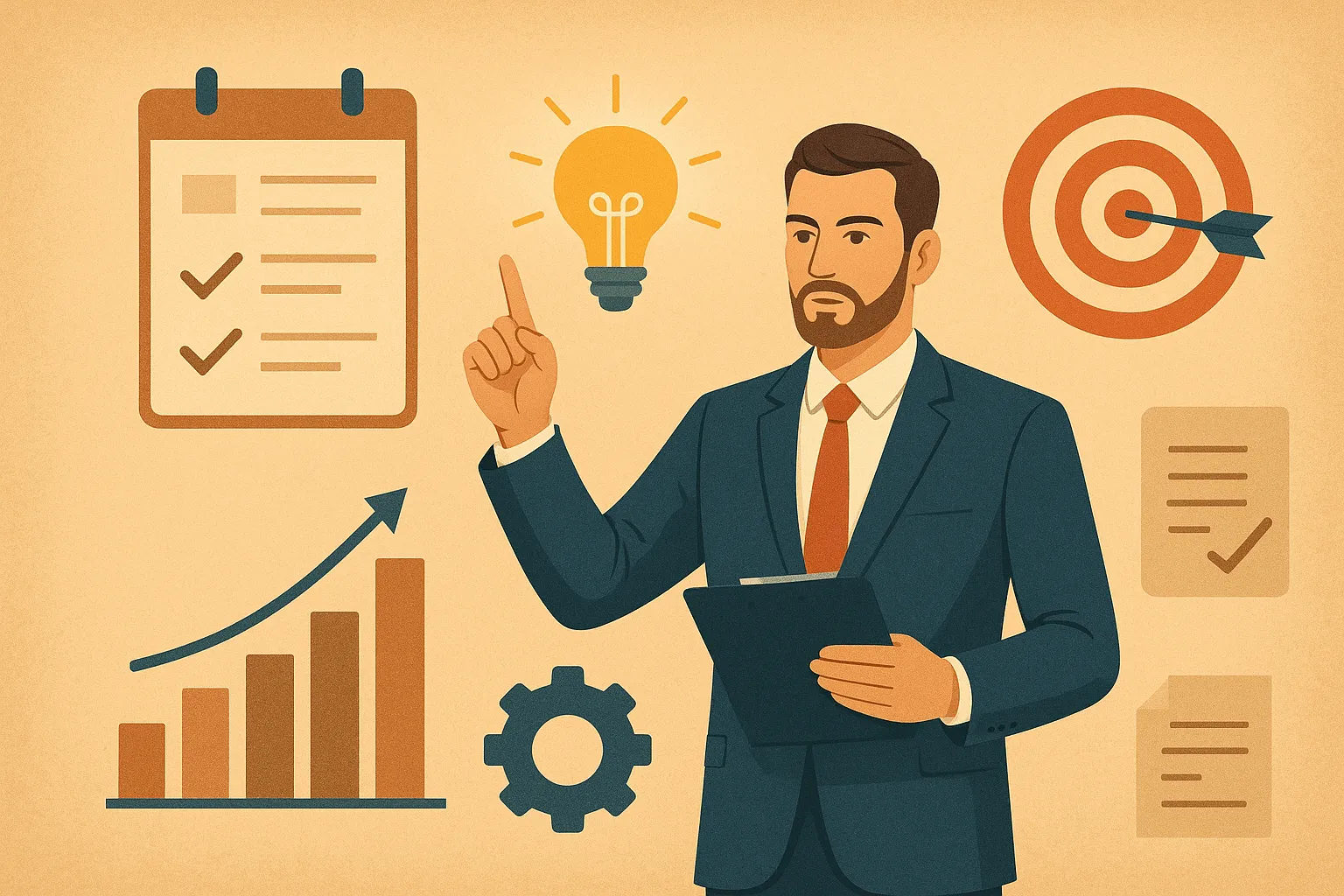
- They Practice the Fundamentals—Daily: Top closers don’t wing it. They practice. They rehearse sales calls and follow-up lines. They role-play common objections like “It’s too expensive.” They read a chapter from a good sales book each week.
- They Measure, Then Adjust: Great sales professionals don’t just guess. They track how many calls they make. They review how many deals closed and why. They adjust based on what works.
- They Ask Better Questions Than Everyone Else: Smart sellers don’t just pitch. They listen. They ask, “What’s your biggest goal this year?”. They ask, “What’s stopping you from deciding today?”
- They Don’t Rely on Pressure to Close: Top closers focus on value, not tricks. They explain how their offer solves real problems. They don’t rush or push too hard.
- They Keep Learning—Even After Big Wins: They never stop growing. They read closing the sale books even when sales are good. They attend trainings or listen to podcasts on the way to work.
Closing Techniques That Still Work—Even in a Changing Market
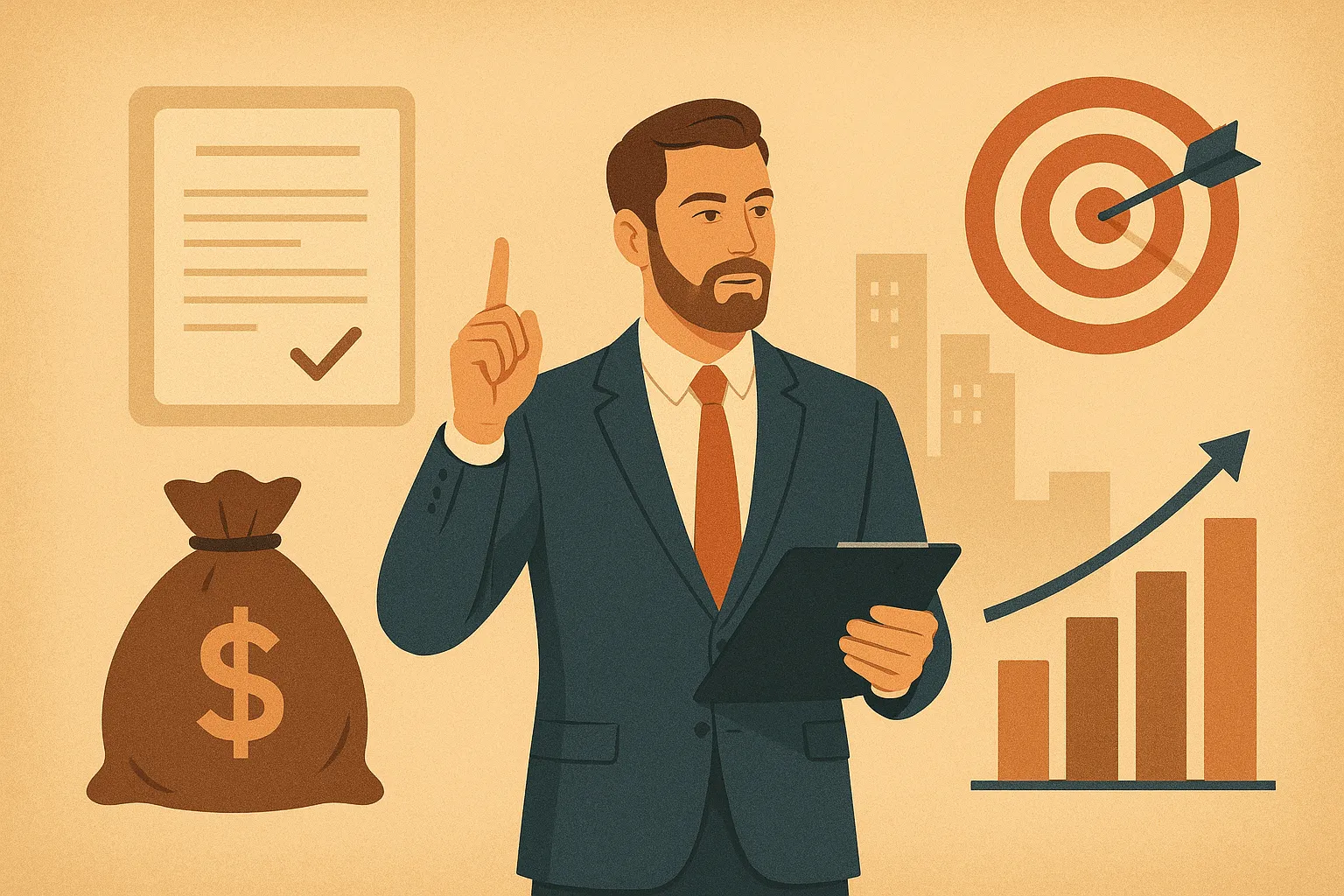
1. The Assumptive Close — Still Subtle, Still Powerful
This technique works by acting as if the buyer has already said yes. Instead of asking “Would you like to buy?”, you say “When should we schedule the delivery?”
- Say things like “We’ll begin onboarding next week,” instead of asking if they want to start.
- Keep your tone calm and natural.
- Use it only when the buyer has shown interest.
2. The Option Close — Make Them Feel in Control
You give the buyer two or more choices—both of which end in a sale. It helps them feel like they’re making the final decision.
- Ask, “Would you prefer the 6-month plan or the annual one?”
- Say, “Would you like the blue model or the black one?”
- Keep it simple. Don’t offer too many options.
Example: A gym membership salesperson asks, “Would you like to start with personal training or jump straight into group classes?”
3. The Summary Close — Tie It All Together
This method works by repeating all the things the buyer liked—before asking for the sale.
- Recap benefits: “You said you liked the fast setup, 24/7 support, and simple dashboard.”
- Then ask: “Should we go ahead and get this started for you?”
Example: A car dealer might say, “You liked the mileage, the safety rating, and the weekend delivery option. Should I prepare the papers?”
4. The Urgency Close — Without the Sleaze
This method shows the buyer that taking action now has real benefits—but without pressure or fear tactics.
How it works:
- You highlight limited-time value: “This 10% discount is available till Friday.”
- Or upcoming changes: “Prices go up next month.”
- Use facts, not tricks.
Example: A rep says, “Just letting you know—only two slots are left for onboarding this month.”
5. The Question Close — Let Them Convince Themselves
Instead of telling them why they should buy, you ask smart questions so they say it out loud.
- Ask: “What would change for you if this problem was solved?”
- Or: “What part of this solution feels like the best fit for you?”
6. Use Language from Closing Books to Boost Impact
Top sales authors have already tested what works. Using phrases from closing the sale books can make your pitch stronger.
- Swap “Would you like to buy?” with “Let’s get started on results.”
- Replace “Let me know” with “Can I pencil you in for Friday?”
7. Clean Close, Not a Pushy Pitch
The best closes feel like a natural next step—not a forceful push.
- Ask, “Is there anything stopping us from moving forward?”
- Or say, “Happy to send the contract when you're ready.”
Conclusion
If you want to succeed in sales, you must master the close—and that takes more than charm. The best closing the sale books offer real steps, tested over time, to turn “maybe” into “yes.”
Many sales professionals still make the mistake of skipping follow-up or not knowing when to ask for the sale. Books by Brian Tracy and others give clear advice that works, even in today’s changing market. You’ll learn how to handle objections, build value, and make your customer feel heard.
Don’t just wait and hope your next deal goes through. Invest time in these books. You’ll become a better salesperson, get more clients, and close with confidence.
And remember—hard work, research, and the right training help you create better outcomes. Business is competitive. If you’re not improving, someone else is.
So grab a book. Expect results. And never stop learning.

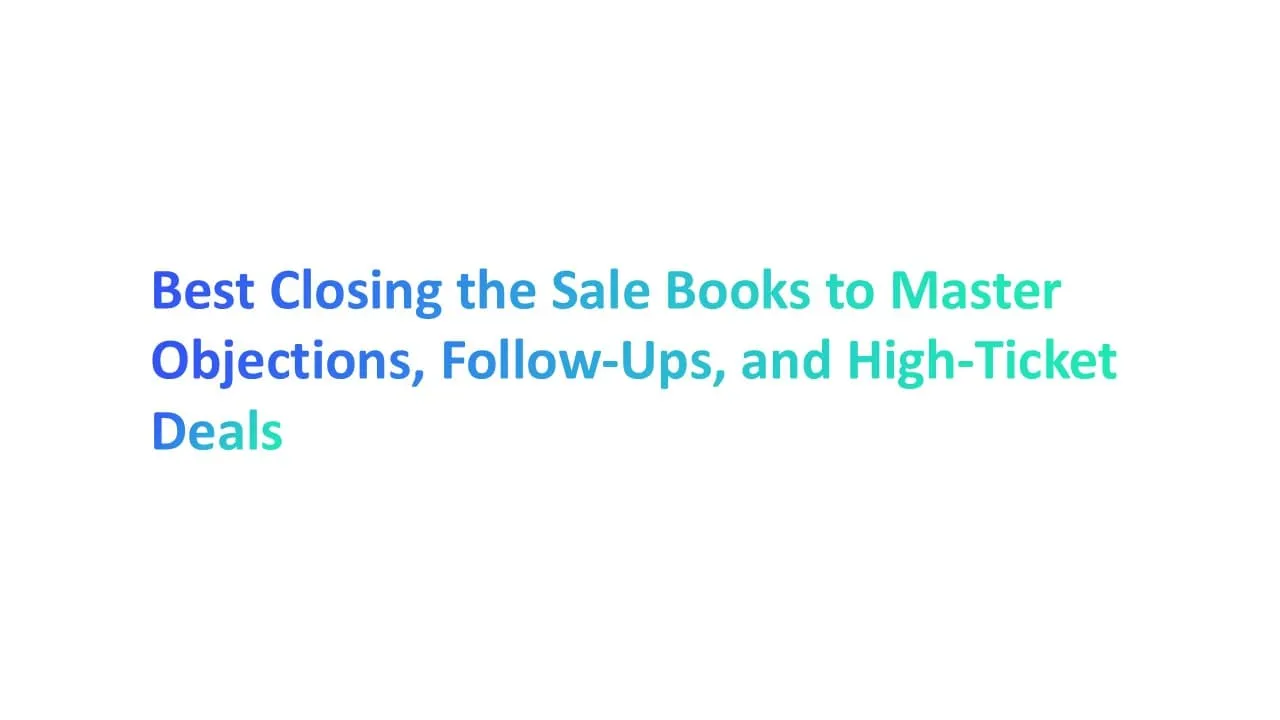



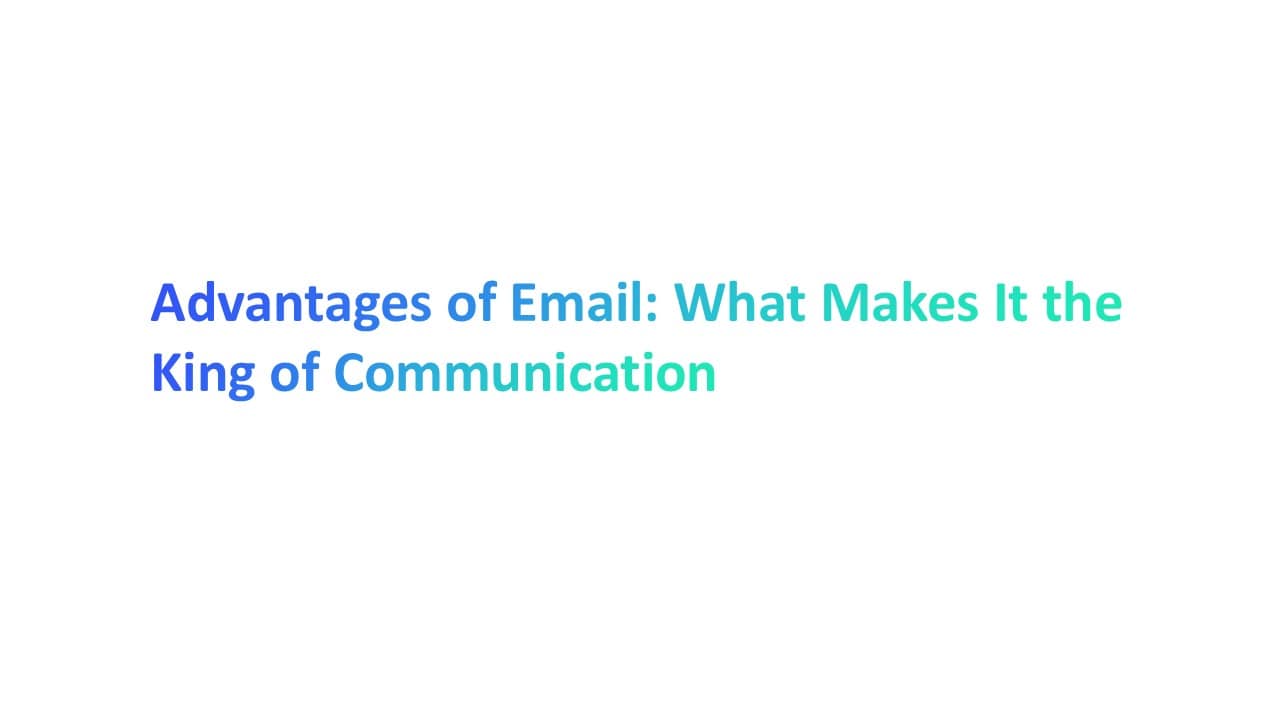

.webp)

